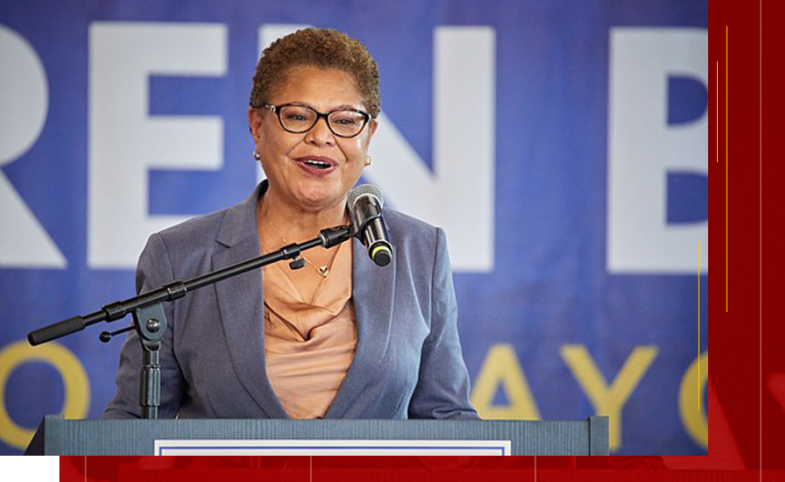“Public Diplomacy in the News” is a CPD Blog series by Andrew Dubbins that spotlights noteworthy stories on public diplomacy topics such as cultural diplomacy, nation branding, exchange programs, international...
KEEP READINGThe CPD Blog is intended to stimulate dialog among scholars and practitioners from around the world in the public diplomacy sphere. The opinions represented here are the authors' own and do not necessarily reflect CPD's views. For blogger guidelines, click here.

Public Diplomacy in the News: Smart City Diplomacy, AI Playbook, & Digital Diplomacy
“Public Diplomacy in the News” is a CPD Blog series by Andrew Dubbins that spotlights noteworthy stories on public diplomacy topics such as cultural diplomacy, nation branding, exchange programs, international events and conferences, digital diplomacy, and strategic global communications.
Smart city diplomacy unites LA and African cities for sustainable innovation. Los Angeles and African cities are increasingly exploring smart city diplomacy as a means to address global challenges like climate change and technology governance. This form of diplomacy leverages the innovation and unique dynamics of cities to create sustainable, resilient urban environments. Los Angeles, a leader in city diplomacy, is engaging in strategic partnerships with African cities, which are experiencing rapid urbanization and facing critical issues like climate change. USC hosted listening sessions for the initiative, including a session featuring Los Angeles Mayor Karen Bass (pictured above) and thirteen USC students from Africa, focused on strengthening ties between Los Angeles and Africa. By sharing knowledge and collaborating on smart city initiatives, participating cities aim to foster sustainable development and enhance global governance through city-led actions and innovations.
Nanjira Sambuli / Carnegie Endowment for International Peace
AI Playbook promotes responsible global development and sustainability. The “AI in Global Development Playbook,” launched alongside the Global AI Research Agenda, outlines a comprehensive approach to leveraging artificial intelligence to advance sustainable development globally while mitigating potential risks. Initiated by the U.S. government, the Playbook emphasizes the responsible design, deployment, and use of AI to accelerate progress in areas such as health, education, and climate action. By promoting international cooperation and multi-stakeholder partnerships, the Playbook aims to ensure that the benefits of AI are equitably shared across the globe, particularly in low- and middle-income countries, while safeguarding human rights and fostering trust in AI technologies.
CPD Research Fellow explores digitalization's impact on diplomacy. In a Q&A, CPD Research Fellow Kristin Anabel Eggeling, an Assistant Professor at the University of Copenhagen, emphasized the importance of integrating digitalization and ethnographic methods in international relations research. Her work explores the evolving role of digital technologies in diplomacy, particularly how these technologies impact trust-building and confidentiality among diplomats. Eggeling draws inspiration from real-world experiences, such as her observations in Doha and Brussels, to investigate concepts like digital sovereignty and the entanglement of technology in diplomatic practices. She advocates for a nuanced understanding of digital tools in diplomacy, highlighting the necessity of contextual and social analyses over purely technical perspectives.
Okinawa Governor champions peaceful diplomacy amid U.S. military tensions in Okinawa. Okinawa Governor Denny Tamaki is focusing on regional diplomacy amidst rising tensions in the Asia-Pacific, particularly concerning the U.S. military presence on Okinawa. Tamaki, who has a personal connection to the U.S. military through his American father, advocates for reducing the "overconcentration" of U.S. bases on the island to promote peace through diplomacy rather than military force. His leadership reflects a centrist approach, aiming to balance the historical and ongoing challenges between Okinawans and the U.S. military, while emphasizing the importance of dialogue in maintaining regional stability.
Taiwan leverages indigenous diplomacy to strengthen Pacific ties. Taiwan's indigenous cultures present a unique and underutilized diplomatic asset in the island's struggle for recognition in the Pacific region, especially in contrast to China's economic and infrastructural influence, writes Mitchell Gallagher for Asia Times. By leveraging the rich cultural heritage, resilience, and environmental wisdom of its indigenous peoples, Taiwan can foster deeper connections with Pacific Island nations, aligning with their own indigenous values and ecological challenges. This strategy of indigenous diplomacy could counterbalance China's dominance by emphasizing cultural resonance, mutual respect, and shared heritage, potentially redefining Taiwan's global standing and influence in the region.
Visit CPD's Online Library
Explore CPD's vast online database featuring the latest books, articles, speeches and information on international organizations dedicated to public diplomacy.
POPULAR ARTICLES
-
January 29
-
January 20
-
January 28
-
January 2
-
January 8
Join the Conversation
Interested in contributing to the CPD Blog? We welcome your posts. Read our guidelines and find out how you can submit blogs and photo essays >.













